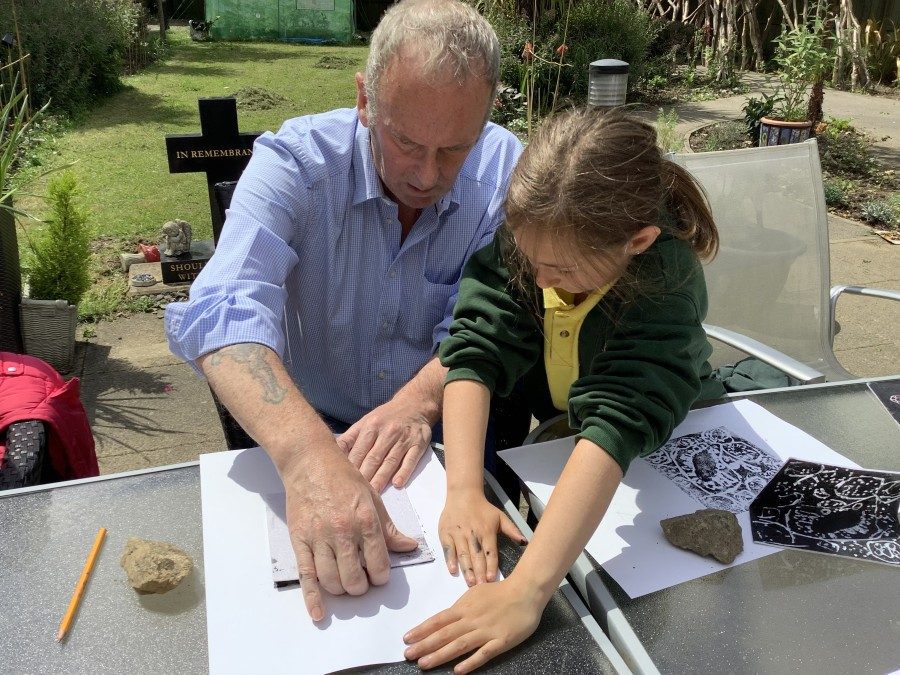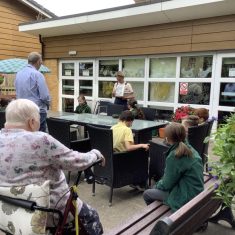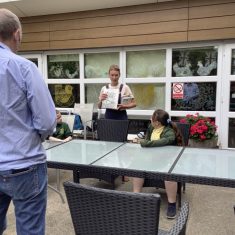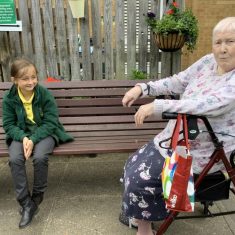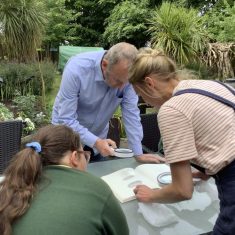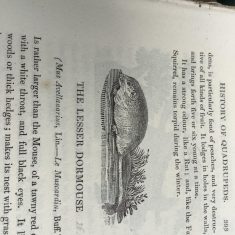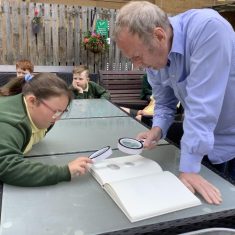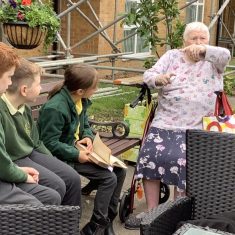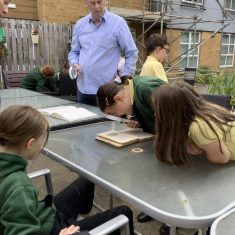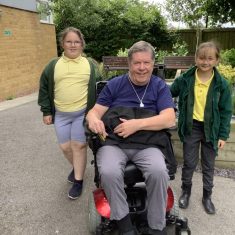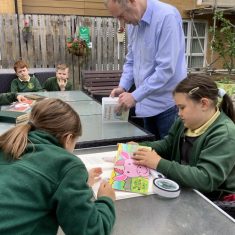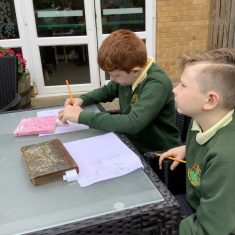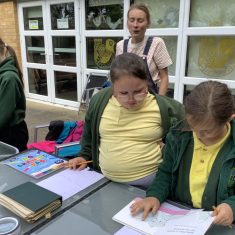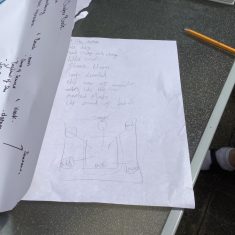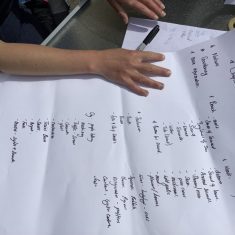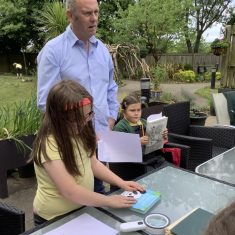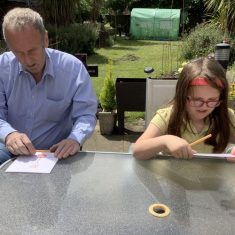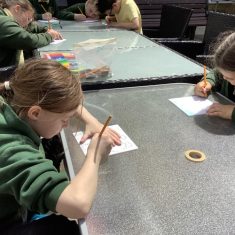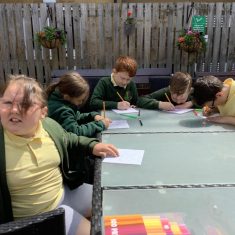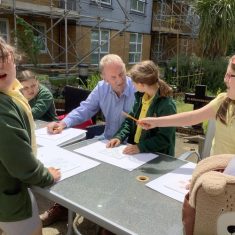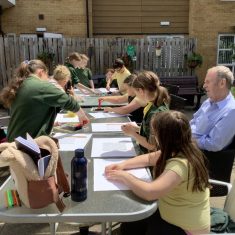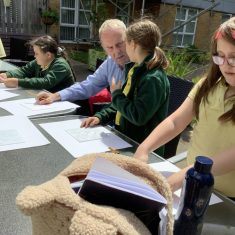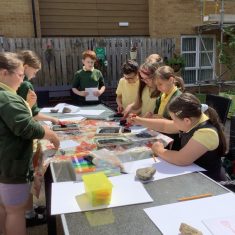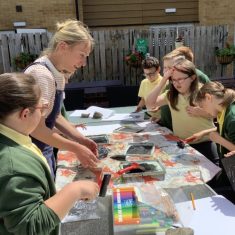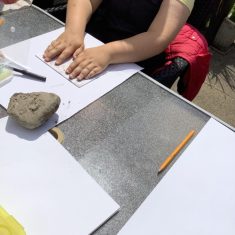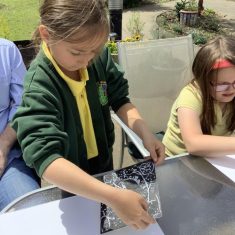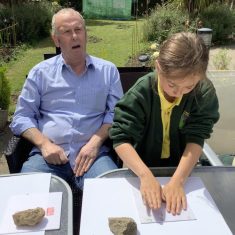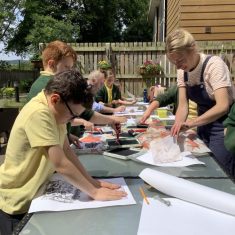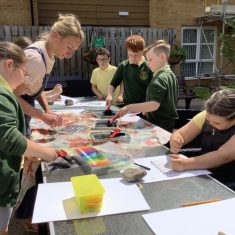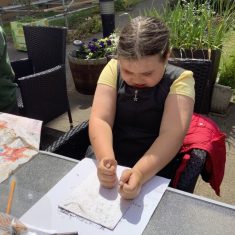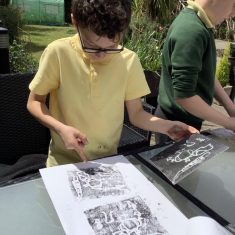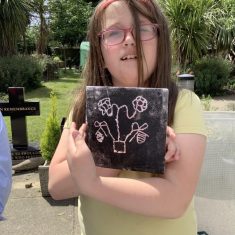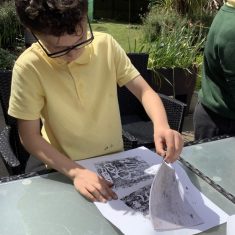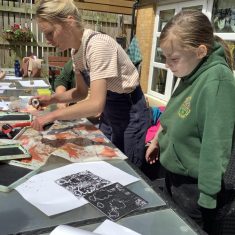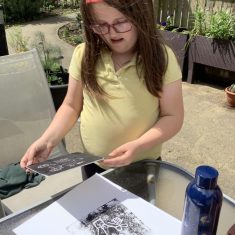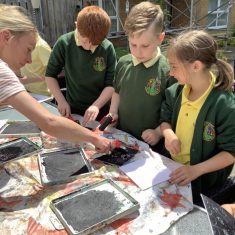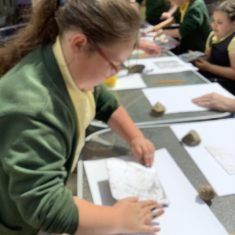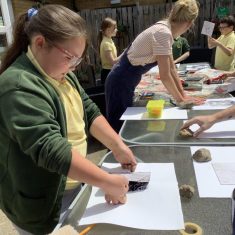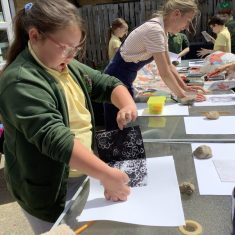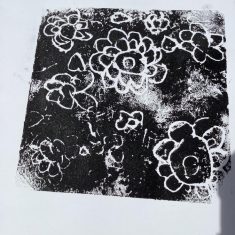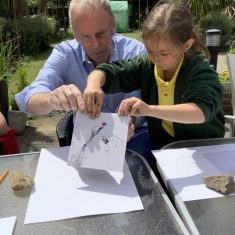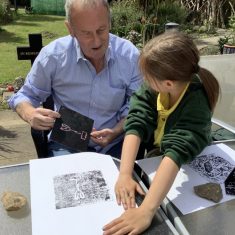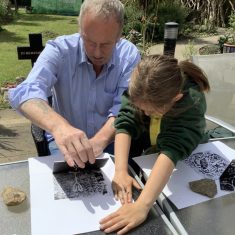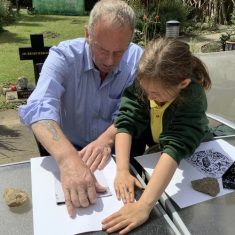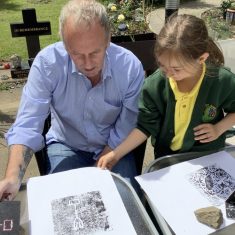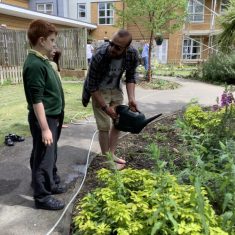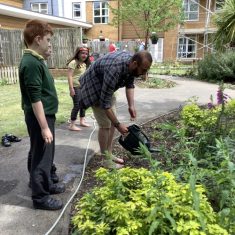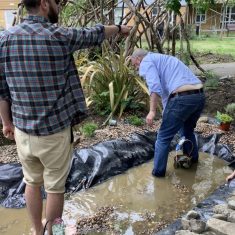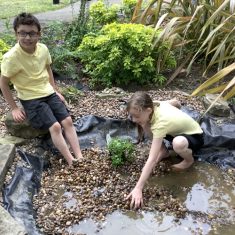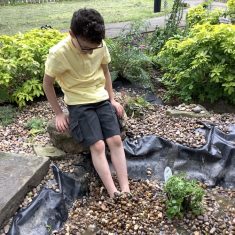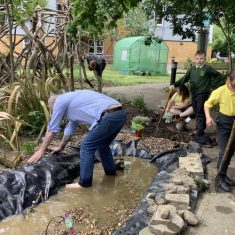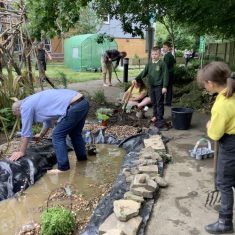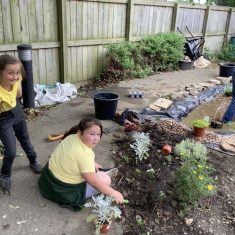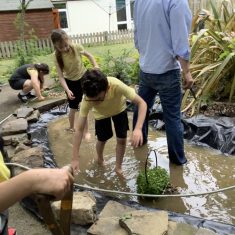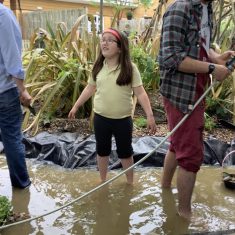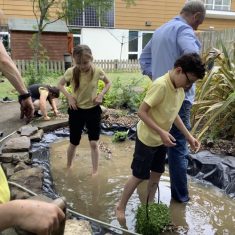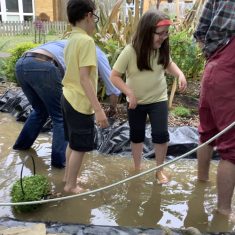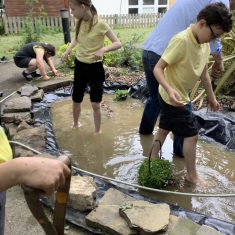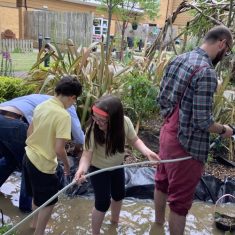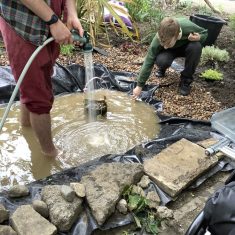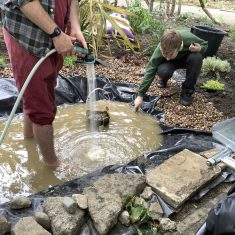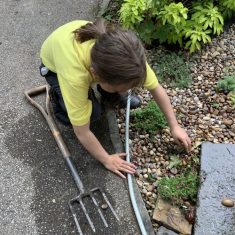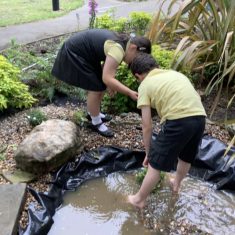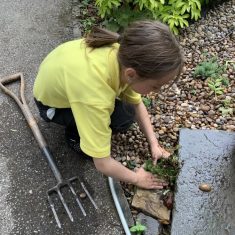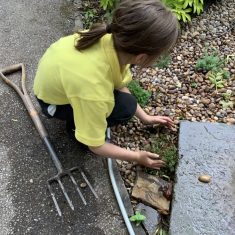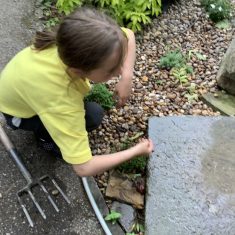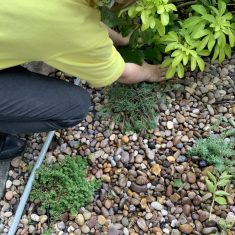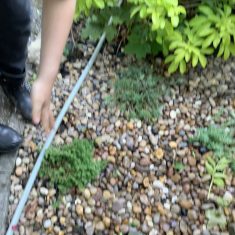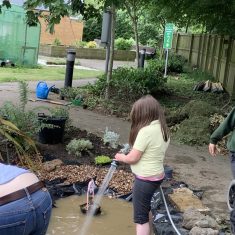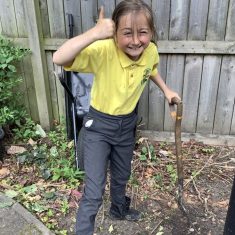This week saw a change of pace at Angel Court. Hannah Shaw, a printmaker, came to run a creative session inspired by the wood carvings of Thomas Bewick. First the children looked at some of his books, using magnifiers to hone in on the details. They discussed how much texture and movement he managed to get into each print. Then we talked about how our friends who may have Alzheimer’s may react to these books. There is a lot of small text that may be overwhelming, it can also be the case that experiences of nature can become increasingly limited as people with dementia may struggle to get outside with independence. So how could we design a book that could give a person the sense of nature without actually going out. The children described sounds and smells they have experienced in different settings. Woodland, the city or the beach for example. Could we create a book of our own? Could it have sound and smell buttons? Or do we design a feely tray so residents could feel and smell the actual materials? We will think about it over the coming weeks. After that it was time for some simple prints. Children chose something from the garden to inspire their design. Theses were imprinted into polystyrene mats then printed onto paper. The children learned first hand how hard it can be to create fine details, imagine doing it with sharp tools into wood!
After lunch it was back to the garden to continue with the Jubilee Parterre. The garden looks amazing as the plants become more established and the pond begins to settle. More and more residents are coming down each week to enjoy it. This week we added more border plants, these not only add splashes of colour but also define paths. We added pond plants and continued with the rockery.
Principle 1: Forest School is a long-term process of frequent and regular sessions in a woodland or natural environment, rather than a one-off visit. Planning, adaptation, observations and reviewing are integral elements of Forest School.
Article 23 – We all the right to special care and support if we are disabled and be able to live a full and independent life.
- Learning about Thomas Bewick.
- Elsie talking about her favourite animals.
- Peter came to see what was happening.
- Looking at feely books for children.
- Thinking about what sights and smells remind us of certain places.
- A possible layout for a book.
- Marking the polystyrene.
- Finally adding some ink.
- Life is easier with help.
- Off to the garden after lunch.
- In this heat its important to water the soil not the plants.
- Meanwhile in the pond…..
- Adding pond plants.
- Rockery plants.
- Very proud of all her work.
